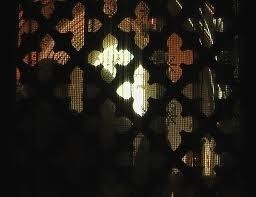I’m intrigued by those folks who are consumed with “prepping” their families for any of several big catastrophes yet-to-come. They stockpile food and water and many of them have elaborate home defense systems, energy reserves and secret “bug out” locations. Some of them, I’ll admit, kinda creep me out. Especially the ones who teach their toddlers to use weapons and who regularly chow down on roadkill or reptiles. But even so, I know that being prepared for an emergency is a good thing. If you live in an earthquake zone or in a place where tornadoes or hurricanes or snowstorms threaten (and that just about all of us) then it’s a good idea to have a stocked emergency kit and response plan in place.
One of the disaster scenarios that promises the most devastation is something called a nuclear Electro-Magnetic Pulse (EMP) event. If some rogue country or terrorist group gets their hands on a nuclear bomb and detonates it at a fairly high altitude, it would send out a sort of gigantic lightning strike into the atmosphere. This would, according to many sources, cripple or destroy most of our modern electronics. In a few seconds, our satellite communications systems would be gone. Electrical grids would fail. Most cars and other small engines wouldn’t work anymore. Planes would fall from the skies. In a flash, everything we’ve come to rely on so heavily in our modern world would be gone. Things like clean running water, stocked supermarkets, working hospitals and reliable emergency services—all would be gone. We’d be back to pioneer days. If you didn’t have access to clean water, you’d be dead in just a few days. Your food would be limited to what you have on hand in your pantry or whatever wildlife you could trap or kill. If you need medication, your at-home supply would soon run out. In a few weeks, our society would begin to seriously break down as desperate people seek food wherever they can find it. It sounds horrifying.
And it probably won’t happen. Yes, it’s within the realm of possibility, but so are the odds of winning the lottery. As for me, I’ll stock up on a few essentials like bottled water and toilet paper and coffee…and carry on. We can imagine several doomsday scenarios like the extreme preppers do, or we can live our lives and prepare for the very real future of our own mortality. This is something we KNOW is going to happen but most of us are pretty good at not thinking about. And yet we’re constantly moving towards that transition.
I say “transition” and not “end” because as a Christian, I know that I’ve been created for eternal life. “Prepping” for us means allowing Christ to live in us and through us every day, in every moment. We do this in a group called “His Church” and He gives us everything we need to follow Him. We receive His grace, His very life, in the Sacraments He’s given us. He draws us to Himself as we gather around His altar with our parish family. We build one another up and use our different gifts to glorify Him and to serve one another. We grow in mercy and kindness and patience. We sin and ask for His forgiveness and then we try again. We carry the cross He has given us and we look to the Saints for inspiration and prayerful support. We ask our Blessed Mother to lead us closer to her Son and we beg the angels to protect us from the forces of this fallen world. It’s not a journey designed for someone to go it alone, which is why Jesus left us a Church. In her, we find all that we need, the fullness of the treasury of our faith.
So as some prepare for the widespread loss of cellphones and CNN (oh happy day!), those of us who belong to Jesus will keep our eyes fixed on Christ. We’ll go to confession. We’ll go to Mass and receive the gift of His Body, Blood, Soul and Divinity in the Holy Eucharist. We’ll pray that we my decrease and that He may increase. I’ll pray that Jesus will help me to be kind and to live each day with joy. I’ll beg for His mercy on me, an undeserving sinner. I’ll give thanks for all His many blessings and I’ll pray that I can be a blessing to others. So, yeah, maybe I’m a prepper after all.
“There are better things ahead than any we leave behind.”
—–C.S. Lewis





